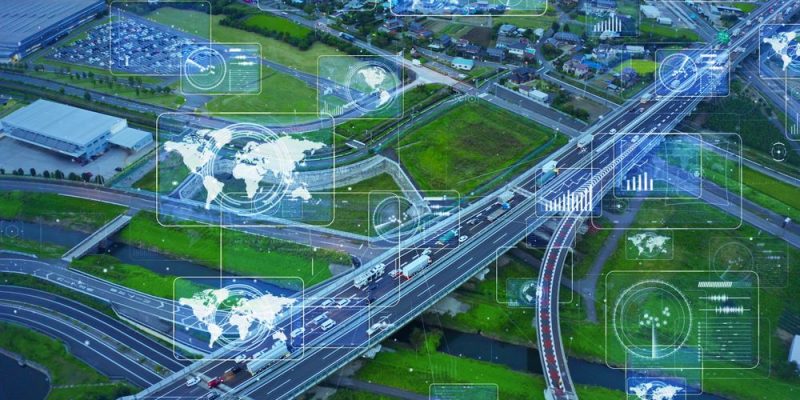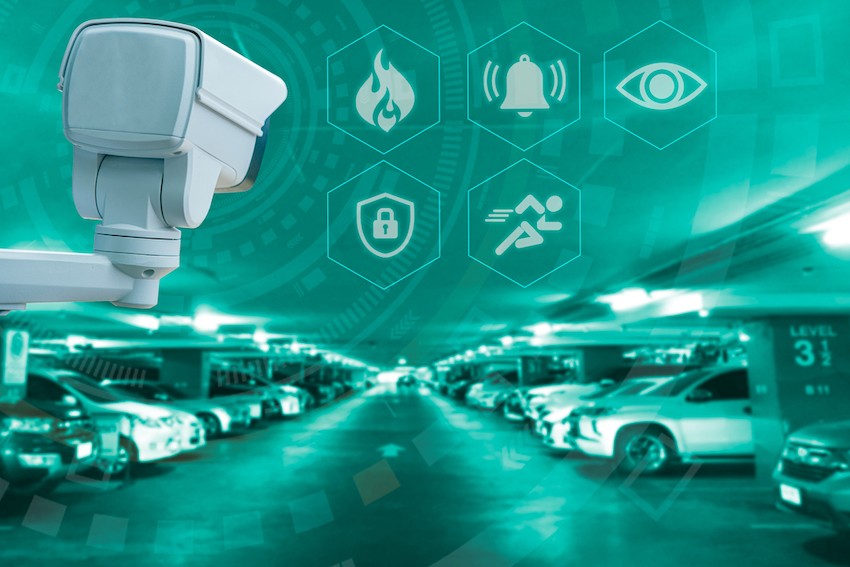
AI in Traffic Management: Applications and Benefits of Use
Traffic management is a critical aspect of modern urban planning. The rapid growth of urban areas has led to an increase in the number of vehicles on the road, resulting in congestion, delays, and accidents. Traffic congestion has significant negative impacts on the environment, the economy, and the quality of life of citizens. Managing traffic effectively is, therefore, essential to reduce congestion, improve air quality, and enhance the overall livability of cities.
With the rise of artificial intelligence (AI), there is an opportunity to revolutionize the way we approach traffic management. AI technology can be used to collect and analyze real-time data on traffic patterns, and provide insights that can inform better decision-making. This article explores the use of AI in traffic management, and how it can help us to manage traffic more intelligently.
What is Traffic Management?
Traffic management refers to the process of designing, operating, and maintaining transportation systems to ensure the safe, efficient, and reliable movement of people and goods. It involves a range of activities, including traffic planning, road design, traffic control, and incident management. The goal of traffic management is to optimize the use of transportation infrastructure to meet the needs of users, while minimizing the negative impacts of traffic on the environment and the economy.
How Can AI Help in Traffic Management?
AI can be used to help manage traffic in several ways. Here are some of the key ways in which AI can be used to improve traffic management:
Coordinated Traffic Lights
One of the main ways in which AI can help to manage traffic is by coordinating traffic signals. Traffic lights play a critical role in managing traffic flow, but they are often poorly synchronized, leading to congestion and delays. AI algorithms can be used to analyze traffic patterns and adjust traffic signals in real-time, based on the volume of traffic and the direction of travel. This can help to reduce congestion, improve safety, and reduce travel times for motorists.
Automatic Distance Recognition
AI can also be used to monitor the distance between vehicles and adjust speed limits accordingly. This can help to reduce the risk of accidents caused by tailgating, and improve overall safety on the road. Automatic distance recognition technology can also be used to adjust traffic signals in real-time, based on the distance between vehicles.
Smarter Parking

AI can be used to improve parking management in urban areas. By using sensors and real-time data analysis, parking spaces can be monitored, and availability can be communicated to drivers in real time. This can help to reduce congestion, improve air quality, and enhance the overall livability of cities.
Better Route Planning
AI algorithms can be used to analyze traffic patterns and recommend optimal routes for drivers. This can help to reduce congestion, improve travel times, and reduce emissions. Route planning can also be used to optimize public transport systems, improving the efficiency and reliability of buses and trains.
Better Law Enforcement via AI
Artificial intelligence can also be used to improve law enforcement on the road. By analyzing traffic patterns and detecting potential violations, police can be directed to areas where there is a higher risk of accidents or other traffic incidents. This can help to reduce the number of accidents and improve overall safety on the road.
Is it Possible to Manage Traffic Intelligently?
The answer is yes. With the help of AI technology, traffic management can be more efficient and effective. Artificial intelligence algorithms can be used to collect and analyze real-time data on traffic patterns and provide insights that can inform better decision-making. This can help traffic managers to identify areas where traffic is likely to be congested, and adjust traffic signals, speed limits, and other factors accordingly. By using AI to manage traffic, cities can improve the overall efficiency of their transportation systems, reduce congestion, and improve the quality of life for citizens.
How does AI benefit traffic management?
AI technology can benefit traffic management in several ways. By analyzing real-time data on traffic patterns and other factors, AI algorithms can provide insights that can inform better decision-making. Here are some of the key benefits of using AI in traffic management:
AI in road traffic – Quality Data
AI technology can be used to collect and analyze high-quality data on road traffic. By using sensors and other technologies to monitor traffic patterns in real-time, AI algorithms can provide insights into how traffic flows, where congestion is likely to occur, and how best to optimize traffic flow.
Using AI to manage traffic – A complex conversation
Managing traffic using AI is a complex conversation. It involves the integration of multiple systems, including traffic signals, road sensors, and other technologies. AI algorithms must be able to analyze data from these systems in real-time. Traffic managers must work closely with technology providers and other stakeholders to develop integrated systems that can effectively manage traffic using AI.
AI Traffic Systems for a Smart City

AI traffic systems can play a critical role in the development of smart cities. By using AI to manage traffic, cities can optimize transportation systems, reduce congestion, and enhance the overall quality of life for citizens. Here are some of the key ways in which AI traffic systems can benefit smart cities:
Adaptive traffic control system (ATCS)
ATCS is an AI-powered traffic management system that can adjust traffic signals in real time based on traffic volume and other factors. ATCS analyzes real-time data on traffic patterns, to optimize the traffic flow.
Autonomous vehicles
Autonomous vehicles are another area where AI can be used to manage traffic. By using AI algorithms to control the movement of autonomous vehicles, traffic managers can optimize traffic flow and reduce congestion. Autonomous vehicles can also communicate with each other, providing real-time data on traffic patterns and other factors that can be used to improve traffic management.
Intelligent parking planning
AI can be used to improve parking management in urban areas. By using sensors and real-time data analysis, parking spaces can be monitored, and availability can be communicated to drivers in real-time.
Safety and Emergency Situations
One of the most significant benefits of using AI in traffic management is the ability to improve safety and respond to emergency situations quickly. By analyzing real-time data on traffic patterns, AI algorithms can detect accidents, traffic incidents, and other emergency situations. This can help traffic managers to respond quickly and effectively, reducing the risk of accidents and other incidents.
Transit Planning – Intelligent Transportation Systems
AI can be used to optimize public transit systems, improving the efficiency and reliability of buses and trains. By analyzing real-time data on traffic patterns and other factors, AI algorithms can provide insights that can inform better decision-making about transit routes, schedules, and other factors.
Urban Planning
By analyzing data on traffic patterns, AI algorithms can help to inform decisions about road design, traffic signals, and other factors. This can help to create more livable, sustainable, and efficient cities.
AI-Assisted Traffic Management Challenges
There are several challenges to implementing AI-assisted traffic management systems. One of the main challenges is the complexity of integrating multiple systems, such as traffic signals, road sensors, and other technologies. Another challenge is the need for accurate and reliable data, which can be difficult to obtain in some areas.
Cyber Security Challenges

Another challenge is cybersecurity. AI-assisted traffic management systems rely on data from multiple sources, which can be vulnerable to cyber-attacks. It is essential to implement robust cybersecurity measures to protect against data breaches and other security threats.
Economic Questions
There are also economic questions to consider when implementing AI-assisted traffic management systems. These systems require significant investments in technology and infrastructure, and there may be concerns about the cost-effectiveness of these investments.
Ethical Considerations
There are ethical considerations to consider when using AI in traffic management. For example, there may be concerns about privacy and data protection, as AI algorithms require access to large amounts of data to operate effectively. There may also be concerns about bias in AI algorithms, as these systems can perpetuate existing inequalities and discrimination.
Conclusion
AI technology has the potential to revolutionize the way we approach traffic management. By providing insights into traffic patterns and other factors, AI algorithms can help traffic managers to make better decisions. However, there are several challenges to implementing AI-assisted traffic management systems. By addressing these challenges, we can harness the power of AI to create more livable, sustainable, and efficient cities.























